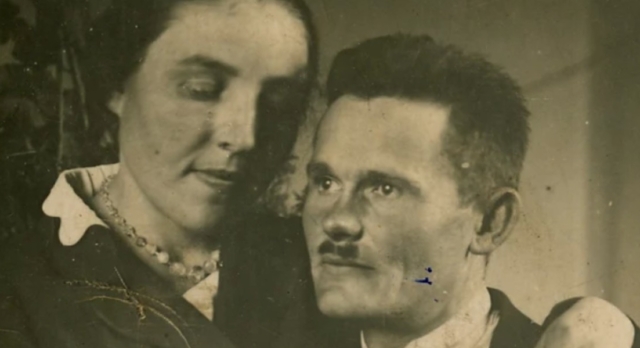Catholic Church beatifies heroic Polish family who sheltered their Jewish neighbours

1944: in a year of atrocities, March 24 was an unremarkable day. In Rome, 335 civilians and political prisoners died in the Ardeatine massacre. A few thousand more were probably gassed in death camps. The murder of 17 people — eight Jews and a Polish family of nine in the small village of Markowa — was just a drop of blood in an ocean of savagery.
However, this particular event is being memorialised as a triumph of human nobility and Christian holiness. On September 10 the Catholic Church will beatify the whole Ulma family. The father and mother, Jozef and Wiktoria Ulma, had already been included in Israel’s Vad Yeshem memorial of the “Righteous among the Nations” for protecting Jewish neighbours at the cost of their own lives.
It is the first time that the Catholic Church has officially recognised the holiness of a whole family: Jozef and Wiktoria, 8-year-old Stanisława, 6-year-old Barbara, 5-year-old Wladysław, 4-year-old Franciszek, 3-year-old Antoni, 1½ -year-old Maria and the unnamed child in Wiktoria’s womb.
The Ulma family
What little we know about their deaths is well-documented.
After the Nazis invaded Poland, helping a Jew was punishable with death, a policy which was enforced ruthlessly.
About 4500 people lived in Markowa, 120 of them Jews. The Ulma family lived on a small farm on the outskirts of the town. Jozef was a well-known local figure. He was a progressive farmer who kept bees and bred silkworms. He was also a photographer whose evocative images give some idea of life at that time. He was also the first in Markowa to have electricity, having built a windmill to power light globes. He and his wife were deeply religious.
In the summer of 1942, a number of local Jews were shot in Markowa. Some of the survivors asked Jozef to hide them – a man called Szall with his four sons, and Layka and Gołda Goldman, and a little girl, probably Layka’s daughter. The refugees lived in the attic and helped with the farm work.
Somehow, they survived like this for two years. Unfortunately, a Polish policeman working with the Germans had stolen money entrusted to him by Mr Szall. Eventually he betrayed them to cancel the debt.
Before dawn on the morning of March 24, a detachment of five German soldiers and several Polish police arrived at the farm. They shot the Jews first, then Jozef and Wiktoria. The children were shrieking and the soldiers shot them as well. Wiktoria went into labour after being shot and her child was half-delivered when she was flung into a grave. The soldiers looted the farm and ordered men from the village to bury them.
Joseph Kokott
The policeman who betrayed the Ulmas was shot by the Polish resistance a few months later. The officer in charge was identified in Germany in the 1960s but died before his case went to trial. One of the soldiers, a Czech Volksdeutscher from Sudetenland named Joseph Kokott killed three or four of the children. He was tried in 1957 and died in prison in 1980. A photo of him in uniform shows a clean-cut, handsome Justin Bieber-ish young man with wavy blond hair. None of the others were ever brought to justice.
What inspired Jozef and Wiktoria to risk their lives? We don’t know exactly. They left no letters; they made no courtroom speeches; they had no time to shape eloquent deathbed testimonies. But those who knew them said that their lives were imbued with Christian faith. The priest who prepared the documentation for the beatification said:
“I would like to put at the centre the attitude of everyday faithfulness and obedience to God. This is especially striking when it comes to the Ulma Family. It was the foundation of their lives. They were beautiful, very wise, mature people. For them, a given word had great value, if they made a promise to someone, it was absolutely sacred.”
Perhaps the Ulma family should be named patron saint of Gen X. Its slogans are love yourself, forgive yourself, affirm yourself, pamper yourself, accept yourself. The Ulmas represent the antithesis of this narcissism. In their world, “self” was a four-letter word. They lived first for God, and then for each other, for their children and for their neighbours.
What would the West look like without Christianity? Not like Jozef and Wiktoria Ulma, for sure. But it might look strikingly like Joseph Kokott.
AUTHOR
MICHAEL COOK
Michael Cook is editor of Mercator
EDTORS NOTE: This MercatorNet column is republished with permission. ©All rights reserved.


Leave a Reply
Want to join the discussion?Feel free to contribute!